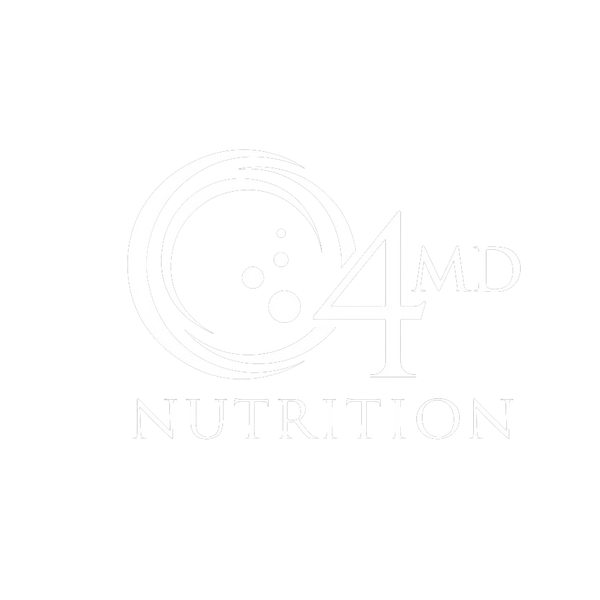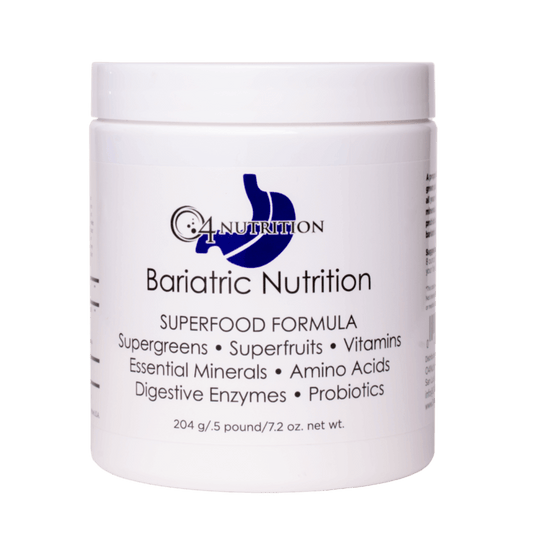Bariatric Nutrition Line
O4Nutrition's Post Bariatric Line provides a comprehensive approach to post-surgery wellness. Meeting ASMBS guidelines, these supplements contain all the necessary ingredients your body requires for optimal healing and ongoing health.
-
O4N Superfood Formula - O4Nutrition MD
12 reviewsRegular price $55.00Regular priceUnit price / per$65.00Sale price $55.00Sale -
O4N Calming Formula - O4Nutrition MD
9 reviewsRegular price $45.00Regular priceUnit price / per$50.00Sale price $45.00Sale
The Complete Solution for Post-Bariatric Wellness
Chart your path to post-bariatric wellness with O4Nutrition's Post Bariatric Line. With a perfect blend of essential nutrients, we ensure your dietary needs are met, your recovery is optimized, and your health is at its best.
Designed in line with ASMBS guidelines, our supplements are your ideal partners on your post-surgery wellness journey.
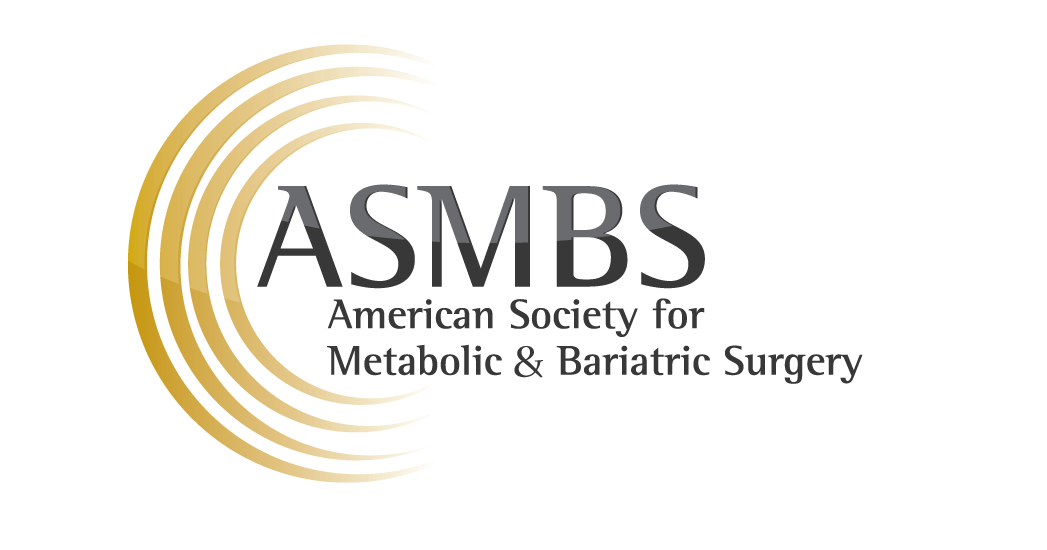
ASMBS standards, essential nutrients, post-bariatric.
Let customers speak for us
from 96 reviewsI drink this at night a few hours before bed. The first week I didn’t notice much of a difference, but after week two I noticed how much deeper I’m sleeping! How much more relaxed I am at night. I will definitely be keeping this in my routine.
I’ve tried dozens of vitamin powders shakes and pills. O4 Nutrition is by far the best one I’ve ever had!
I tried a few supplements since my surgery, and relax is by far the best. I feel healthier and my mood has improved. I will be sticking with this one
Finding the right supplement after bariatric surgery can be tough. This product has made a noticeable difference in my health. The taste is pretty good too.
My nutritionist recommended this one after my surgery. It's been a few weeks and I feel better. I have more energy and I'm sleeping better. I'm very satisfied with this product
I have noticed that my sleep is better and I feel more relaxed. The calcium and Vitamin D3 are a plus too.
My friend suggested this product after her surgery and I gave it a try after mine. I'm glad I did. My energy is up and I feel like my overall health has improved
After my surgery, I was overwhelmed with nutritional advice. Relax has made it easy. It's got everything I need and I can see the difference in my health. I will keep using this.
My doctor was really stressing on calcium and Vitamin D3 after my surgery. Relax Nutrition has been a game-changer. It's easy to use and I actually enjoy the taste.
Am a few months post-surgery and was looking for a supplement that fits my needs. It came recommended, and am glad I tried it. Energy level is up and I'm feeling pretty good
I started using it after my surgery and it's made a big difference. My energy is up and my digestion has improved. Great product!
This product is a lifesaver and has good price for everything that is included....
After my surgery, I was so confused about what supplements to take. Xtreme Nutrition has made it so easy. It has everything I need, and I feel healthier overall
This is a great product for someone like me who has undergone bariatric surgery and need to supplement good stuff
Post-Bariatric Power Duo
-

Superfood Formula
Shop NowEmpower your bariatric nutritional journey with Superfood Formula, a unique blend that brings together superfoods, vital nutrients, enzymes, and probiotics, tailored to enhance digestion, boost immunity, and increase vitality.
-

Calming Formula
Shop NowRelax into wellness with the O4Nutrition Calming Formula, specially formulated for bariatric nutrition. This refreshing lemon-lime supplement combines Calcium, Vitamin D3, and metabolically active Magnesium.
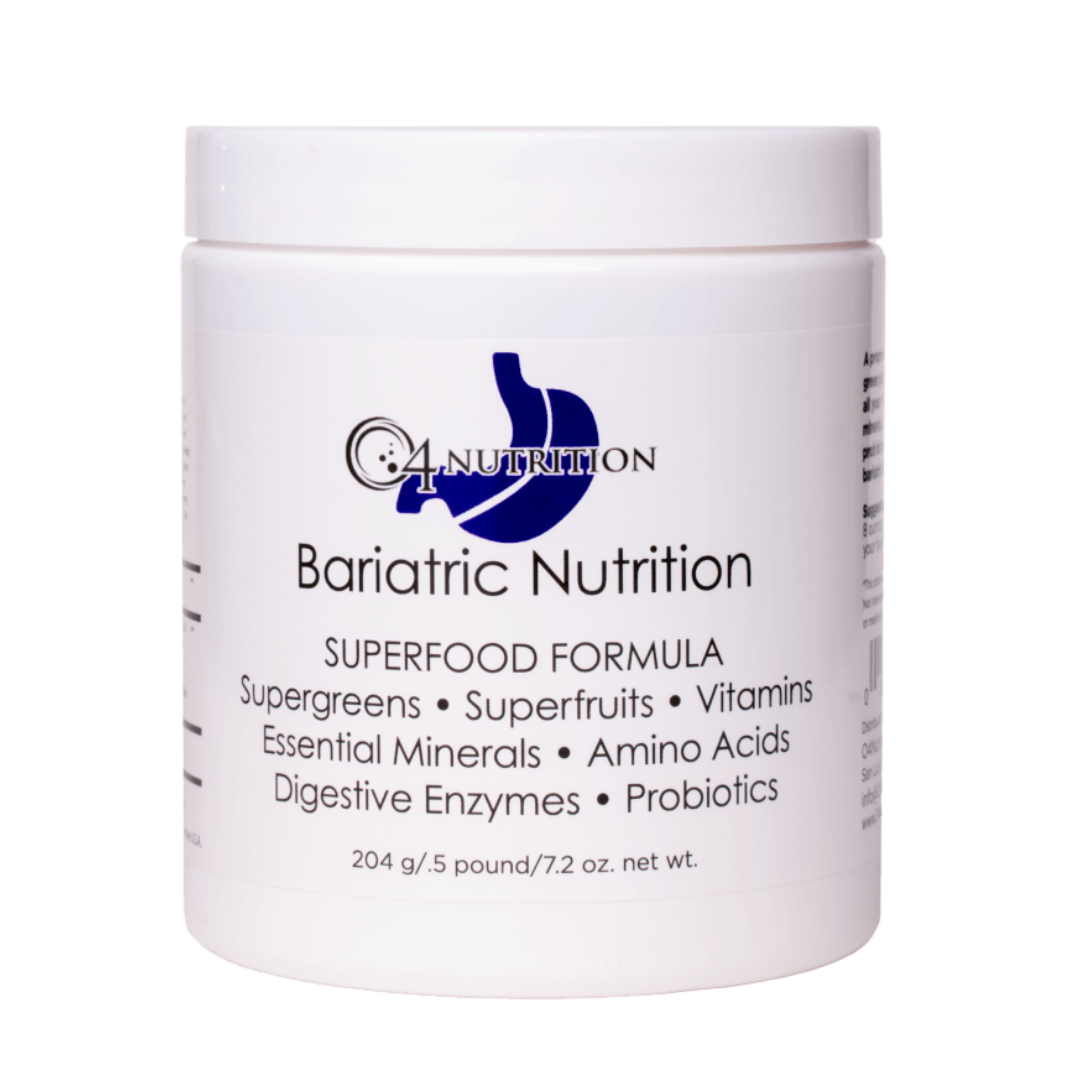
O4NUTRITION
Superfood Formula ASMBS
Experience balanced nutritional support with our Superfood Formula ASMBS, a synergistic blend of super greens, superfruits, essential vitamins, minerals, digestive enzymes, and probiotics.
Specially crafted for those who have undergone bariatric surgery, this formula ensures optimal digestion, boosts immunity and sustains your energy levels.
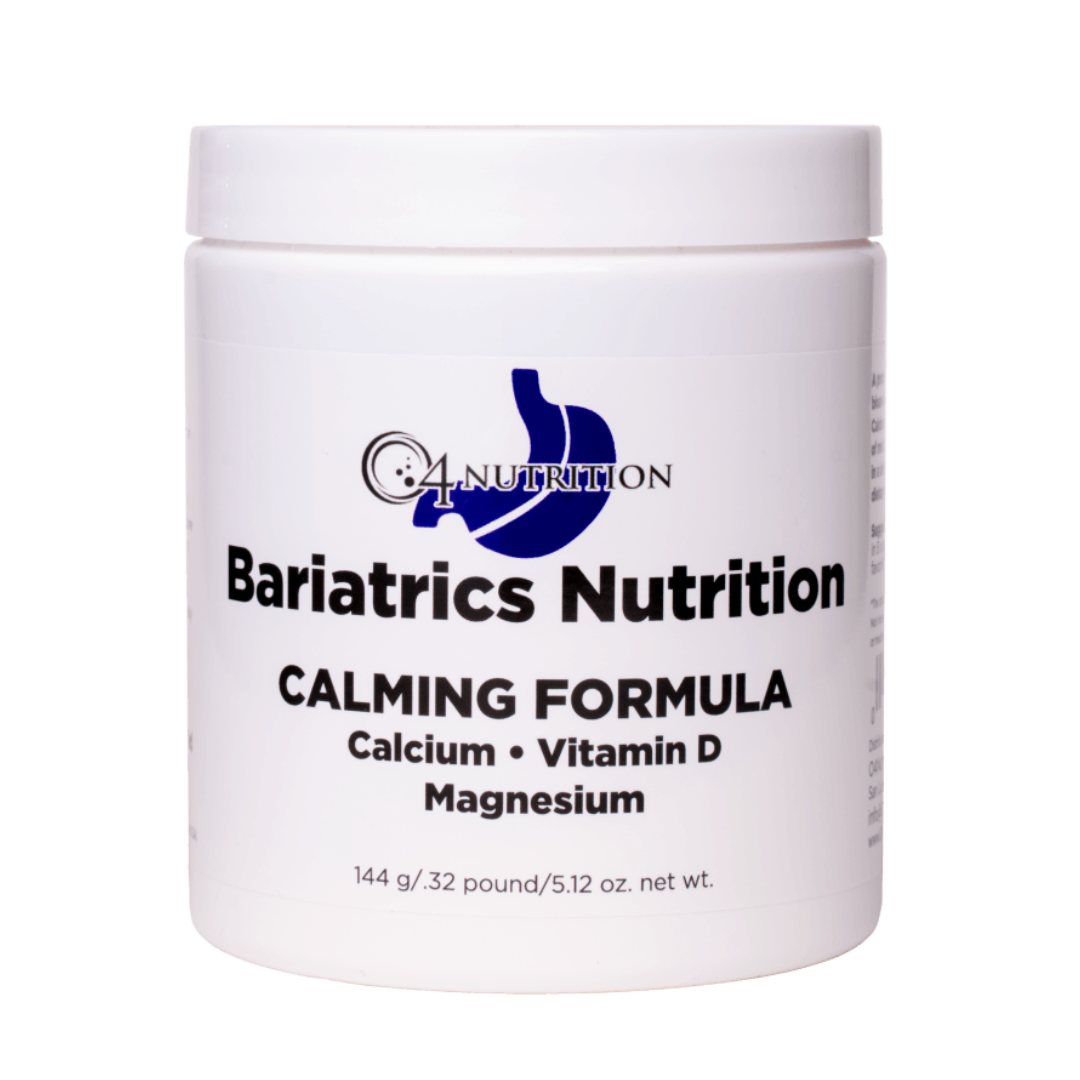
O4NUTRITION
Calming Formula ASMBS
Boost your post-surgical wellness with our Calming Formula ASMBS, a formula rich in bioavailable Calcium, Vitamin D3, and Magnesium. Specifically designed to supplement the unique dietary needs following bariatric procedures, this blend enhances bone health, regulates blood sugar, supports relaxation, and improves sleep quality.
Learn More About Bariatric Nutrition
Bariatric Surgeries: A Nutritional Perspective
-

Gastric Sleeve
-

Gastric Bypass
-

Gastric Band
-

Duodenal Switch
-

Gastric Balloon
Gastric Surgeries and Their Nutritional Implications
-

Sleeve
Gastric Sleeve
Vertical Sleeve Gastrectomy (VSG), a type of bariatric surgery, involves the removal of approximately 60% of the stomach. The remaining portion takes on a tube or "sleeve-like" shape. This alteration in the stomach's structure can lead to several nutrient deficiencies due to factors such as:
- Decreased stomach volume and dietary consumption: The reduced size of the stomach limits the amount of food and nutrient intake.
- Altered digestive capacity: The reduction in stomach size can affect the body's ability to digest food effectively.
- Decreased gastric acid: The use of proton pump inhibitors (PPIs) and the decrease in stomach volume can reduce gastric acid, essential for digestion.
- Following a bariatric procedure like the VSG, patients commonly experience deficiencies in certain nutrients. These typically include protein, thiamin (vitamin B1), cobalamin (vitamin B12), folate, vitamin D, and zinc both before and after surgery. Post-surgery, additional deficiencies often arise, particularly in calcium and iron.
Source: Aarts, Edo O, Ignace M, Janssen C, Berends FJ. The Gastric Sleeve: Losing Weight as Fast as Micronutrients? Obesity Surgery 21.2 (2011): 207–211. PMC. Web. 27 Feb. 2017.
-

Bypass
Gastric Bypass
Gastric bypass surgery, specifically the Roux-en-Y gastric bypass (RYGB), is a prevalent type of bariatric surgery. In this procedure, the stomach is divided into a small upper pouch and a larger lower "remnant" pouch. The small intestine is then rearranged to connect to both sections. Nutrient deficiencies might develop due to:
- Lower dietary intake: The volume of food intake is significantly reduced due to the reduced size of the stomach.
- Altered capacity for digestion: Changes in the stomach and intestine structure can affect the body's ability to digest food.
- Impaired micronutrient absorption: Nutrient absorption can be affected due to bypassing sections of the small intestine, where most absorption usually occurs.
- Patients undergoing gastric bypass surgery commonly experience deficiencies in certain nutrients. Before surgery, deficiencies in protein, thiamin (vitamin B1), cobalamin (vitamin B12), folate, vitamin D, and zinc are common. After the procedure, a broader range of deficiencies can occur, often including calcium, vitamin A, pyridoxine (vitamin B6), vitamin C, iron, and copper, in addition to those prevalent before surgery.
Source: Xanthakos, Stavra A. Nutritional Deficiencies in Obesity and After Bariatric Surgery. Pediatric clinics of North America 56.5 (2009): 1105–1121. PMC. Web. 25 Feb. 2017.
-

Band
Adjustable Gastric Band
The Adjustable Gastric Band (AGB) is a type of bariatric surgery that restricts the capacity of the stomach. In this procedure, a band is laparoscopically placed around the upper part of the stomach and adjusted to reduce its size. Despite leading to fewer malabsorption issues compared to other bariatric surgeries, there are still notable risks of nutrient deficiency with AGB. Nutrient deficiencies might develop due to:
- Changes in dietary intake: After surgery, the smaller stomach capacity can lead to a decreased food intake.
- Changes in food tolerance: Post-surgery, there may be a decreased tolerance for certain nutrient-dense foods, leading to an altered diet.
- Before the Adjustable Gastric Band procedure, patients often have deficiencies in protein, vitamin A, thiamin (vitamin B1), pyridoxine (vitamin B6), cobalamin (vitamin B12), folate, vitamin C, vitamin D, zinc, and selenium. Post-surgery, additional deficiencies might arise in calcium and iron.
-

DS, BPD/DS
Duodenal Switch
The Duodenal Switch procedure, also known as DS or BPD/DS, is a bariatric surgery method that reduces stomach size, reroutes the intestines, and removes the gallbladder. This surgery, while effective in weight loss, presents notable risks of nutrient deficiency.
Nutrient deficiencies may arise due to:
- Significant malabsorption: As this procedure reroutes the intestines, there may be a significant decrease in the absorption of nutrients.
- Reduced stomach volume and dietary intake: With a smaller stomach size, the quantity of food intake is naturally reduced.
- Decreased capacity for digestion due to changes in stomach size: With a smaller stomach, there's less room for the digestion of food.
- Reduced gastric acid: The use of PPIs and reduced stomach volume can lead to lower levels of gastric acid, which is essential for digestion and nutrient absorption.
- Before undergoing the Duodenal Switch procedure, patients may already have deficiencies in protein, vitamin A, thiamin (vitamin B1), pyridoxine (vitamin B6), cobalamin (vitamin B12), folate, vitamin C, vitamin D, vitamin E, zinc, and selenium. Post-surgery, there might be an onset of deficiencies in calcium, iron, vitamin K, magnesium, and potassium.
Source: Xanthakos, Stavra A. “Nutritional Deficiencies in Obesity and After Bariatric Surgery.” Pediatric clinics of North America 56.5 (2009): 1105–1121. PMC. Web. 25 Feb. 2017.
-

Balloon
Gastric Balloon
The Gastric Balloon is a type of bariatric procedure classified as a restrictive surgery. In this procedure, a silicone balloon is placed inside the stomach, which restricts its capacity and thereby reduces food intake. Another similar procedure is the Adjustable Gastric Band (AGB), where a band is laparoscopically placed around the upper part of the stomach to make it smaller. Even though these procedures present less malabsorption issues compared to other bariatric surgeries, they still come with risks of nutrient deficiency.
The nutrient deficiencies that may arise post-surgery are primarily due to:
- Changes in dietary intake: The reduced stomach size limits the amount of food that can be consumed, which can lead to nutrient deficiencies.
- Changes in food tolerance for key nutrient-dense foods: Post-surgery, some patients may develop intolerance to certain foods that are essential for nutrition.
- Before undergoing a Gastric Balloon procedure, patients may already have deficiencies in protein, vitamin A, thiamin (vitamin B1), pyridoxine (vitamin B6), cobalamin (vitamin B12), folate, vitamin C, vitamin D, zinc, and selenium. Post-surgery, there may be an onset of deficiencies in calcium, iron, and possibly others, depending on individual dietary habits.
